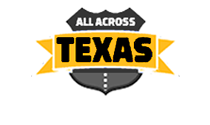Concan

Concan (Con Can) is on the Frio River and State Highway 127 in north central Uvalde County. According to local lore, the town was named after "coon can," a Mexican card game. Though the site may have been settled as early as 1840, the first log cabin with a chimney was built there in the 1860s by Theophilus Watkins. The settlement was awarded a post office in 1880, and J. A. Robinson became the first postmaster. By 1884 Concan had grown to an estimated 150 residents, and a blacksmith shop had been established there; wool and beef were transported from the town to the nearest railroad station at Uvalde. In 1890 about 100 people lived in Concan, and the community had a cotton gin, a blacksmith, and a wagonmaker. The town declined in the early 1890s, however. Its post office was discontinued in 1894 and was not reopened until 1900, when John S. Caddel and his brother began operating a store there. In 1914 Concan had a post office and general store. During the late 1920s the population of Concan was about twenty, and the town had begun to attract tourists; by 1929 the Shut In, on the west bank of the Frio, had become the center of the town. A sawmill was opened at the community in the late 1930s to harvest the cedar, wild cherry, cypress, and walnut trees in the Frio Canyon, and by 1939 Concan had grown to about seventy-five residents. A 1946 map showed a church and a small collection of buildings at the site. The population level remained fairly stable from the early 1940s to the early 1970s, when the town included a post office, a church, two stores, and a community center. By that time the town and the surrounding area had become a popular tourist spot. During the fall and winter, hunters, in search of deer, doves, and wild turkeys, stayed in Concan; during the spring and summer, visitors came to enjoy the clear waters of the Frio River. Concan had seventy-one residents in 1990, but by 2000 the population had grown to 225.
